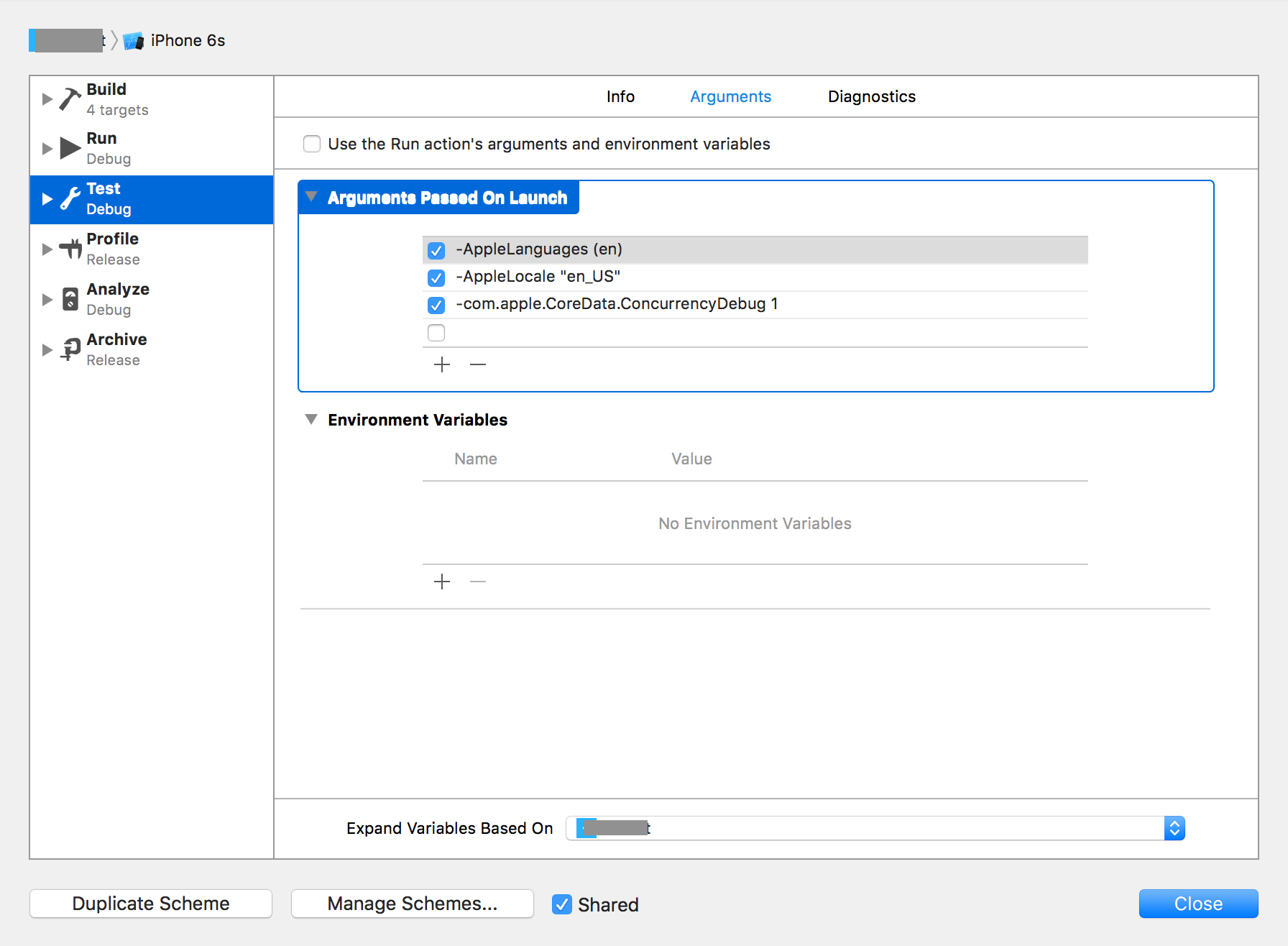Yes, it seems like all environment variables and launch arguments provided in schemes are ignored in XCTest tests.
However, you can set the language programmatically in the test, for example in setUp() method:
override func setUp() {
super.setUp()
// Put setup code here. This method is called before the invocation of each test method in the class.
let app = XCUIApplication()
app.launchArguments += ["-AppleLanguages", "(en-US)"]
app.launchArguments += ["-AppleLocale", "\"en-US\""]
app.launch()
}
Now, you could extend this approach and do something like Snapshot does:
2 thing have to be passed on from snapshot to the xcodebuild command
line tool:
The device type is passed via the destination parameter of the
xcodebuild parameter
The language is passed via a temporary file which
is written by snapshot before running the tests and read by the UI
Tests when launching the application
In the end, In order to change the language on schema bases you can do the following:
1. Write a pre-action script for Test that creates a temp file:
mkdir -p ~/Library/Caches/xcode-helper
echo "en-US" > ~/Library/Caches/xcode-helper/language.txt
2. Load up the file in setUp() and set the app language:
override func setUp() {
super.setUp()
let app = XCUIApplication()
let path = NSProcessInfo().environment["SIMULATOR_HOST_HOME"]! as NSString
let filepath = path.stringByAppendingPathComponent("Library/Caches/xcode-helper/language.txt")
let trimCharacterSet = NSCharacterSet.whitespaceAndNewlineCharacterSet()
let language = try! NSString(contentsOfFile: filepath, encoding: NSUTF8StringEncoding).stringByTrimmingCharactersInSet(trimCharacterSet) as String
app.launchArguments += ["-AppleLanguages", "(\(language))"]
app.launchArguments += ["-AppleLocale", "\"\(language)\""]
app.launch()
}
From now on, the Xcode will run the test with the language/locale specified in the scheme's pre-action script.
UPDATE
Turns out, tests do not ignore the arguments provided in the scheme. The arguments are actually passed to the test itself but not to the tested app. Which might be unexpected but it makes sense.
That being said, all you need to do this:
1. Set -AppleLanguages (en-US) and -AppleLocale en_US launch arguments for the test in scheme
![Screenshot - Set <code>-AppleLanguages (en)</code> and <code>-AppleLocale "en_US"</code> launch arguments for the test in scheme]()
2. Pass the launch arguments in the test to the XCUIApplication instance before calling launch() method
override func setUp() {
super.setUp()
// Put setup code here. This method is called before the invocation of each test method in the class.
let app = XCUIApplication()
app.launchArguments += NSProcessInfo().arguments
app.launch()
}

